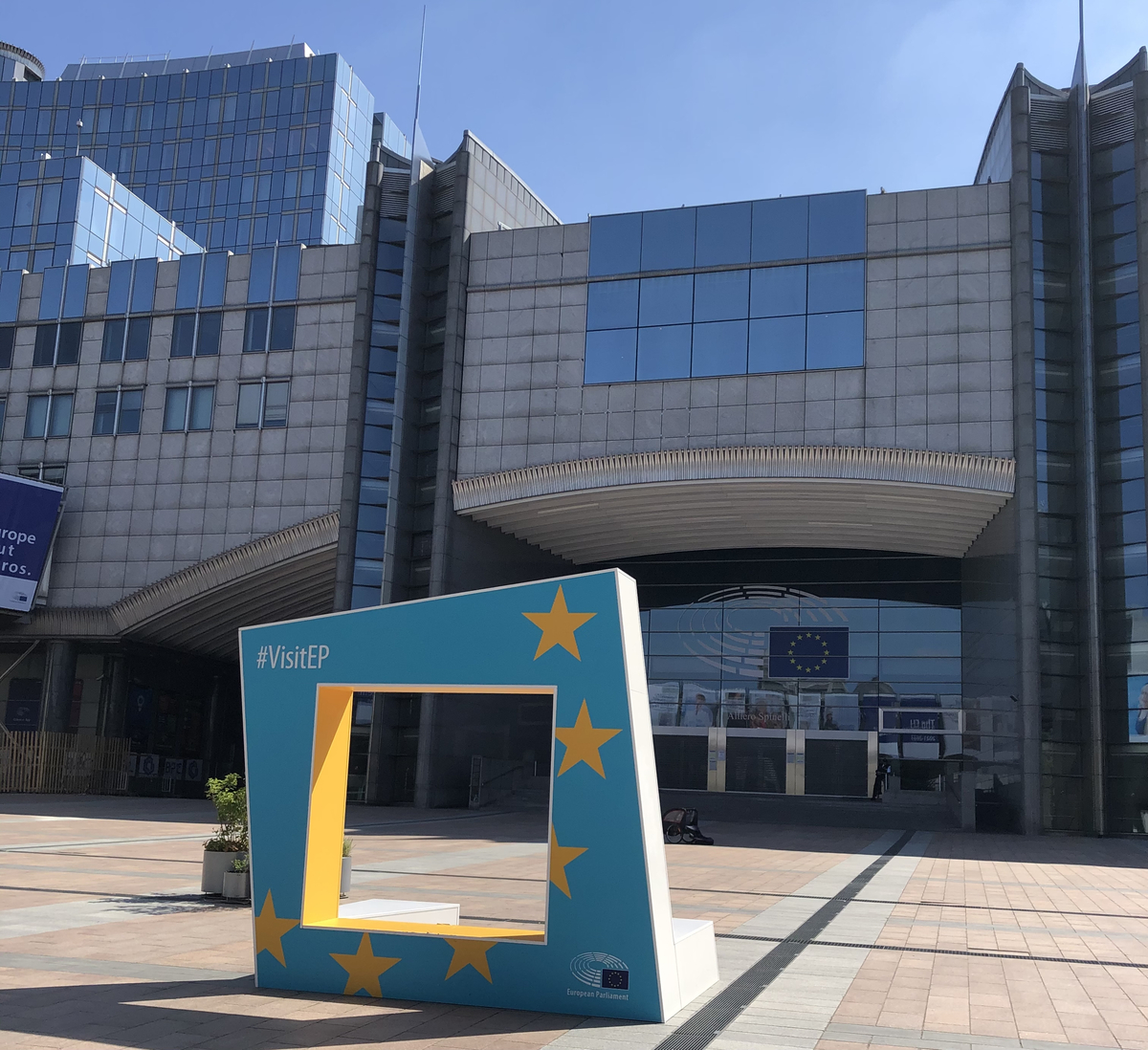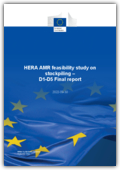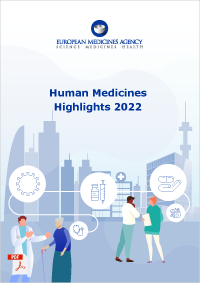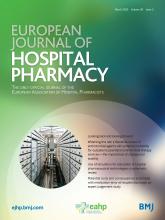22 February 2023 - Join EAHP on 8 March in the European Parliament!
The EAHP EU Monitor is a regular round up of news relevant to hospital pharmacy in Europe.
EAHP-ESCP Oath to Society | Clinical and hospital pharmacists delivering on their promises!

On 8 March 2023, the European Association of Hospital Pharmacists (EAHP) and the European Society of Clinical Pharmacy (ESCP) are evaluating the impact of the Oath to Society. Join us from 13.30 to 15.30 in the European Parliament (SPINELLI 3H1).
Almost 1,5 years ago the Oath to Society was adopted and shared with the public. The event takes stock and seeks to obtain insights from other stakeholders representing patients, nurses, payers, physicians and health providers, on how clinical and hospital pharmacists can continue to deliver on the promises included in the Oath to Society. The event is hosted by MEP István Ujhelyi.
The Oath to Society is the promise that the members of EAHP and ESCP make to the patients and public they serve, the healthcare professionals they interact with and the health systems they work in. The panel discussion will provide an opportunity to reflect on the Oath to Society, the wider contributions of clinical and hospital pharmacists and the viewpoints of key stakeholders.
If you want to participate in the discussion taking place in Brussels in the European Parliament, don't forget to register by 1 March.
Register HERE
Access the agenda HERE
Register for EAHP's 27th Congress

In exactly one month, the 27th Congress of the European Association of Hospital Pharmacists (EAHP) will open its doors. If you have not registered yet, don't forget to do it as soon as possible to join the largest European gathering of the profession from 22 to 24 March in Lisbon, Portugal.
"From drug design to treatment success – what really matters to patients?" will be the theme of EAHPs upcoming congress. The sessions prepared in relation to this theme will be showcasing how hospital pharmacists can translate evidence that is rooted in research into frontline healthcare practice. They cover a variety of topics including but not limited to research activities, e-hospital pharmacy, medicines shortages, procurement, advanced therapy medicinal products (ATMPs), quality assurance in compounding, pharmacogenomics, renal transplant, medication safety, efforts for a green hospital, lay involvement in prescribing and vigilance, medication at the end of life and patient-reported experience measures, and patient-reported outcome measures (PREMs & PROMs).
Register for EAHP's 27th Congress HERE
Follow us on Twitter, Facebook, Instagram, and LinkedIn to stay up-to-date with the latest news from #EAHP2023
Swedish Council Presidency
 In January Sweden took over the Council Presidency. Health care support for Ukrainian refugees, tackling shortages of medicines, access to medical devices, the European Health Data Space (EHDS), antimicrobial resistance (AMR), mental health, fight against cancer and preparedness for future health crises are among Sweden's priorities.
In January Sweden took over the Council Presidency. Health care support for Ukrainian refugees, tackling shortages of medicines, access to medical devices, the European Health Data Space (EHDS), antimicrobial resistance (AMR), mental health, fight against cancer and preparedness for future health crises are among Sweden's priorities.
Similar to its predecessor, the Swedish Council Presidency plans to build on the lessons learned from the COVID-19 pandemic. In addition, it will be responsible for negotiating a number of key proposals, including the Regulation for a European Health Data Space, the proposal concerning a Regulation on standards of quality and safety for substances of human origin intended for human application and the long-awaited revision of the general pharmaceutical legislation of the EU, including proposals on new regulations concerning orphan medicinal products and paediatric medicines. Also, the international pandemic treaty and the EU's Global Health Strategy fall within the work programme of the Presidency.
Linked to the AMR health threat the Presidency will focus on maintaining the possibility of effective treatment of bacterial infections in humans and animals, and keeping the issue at the top of the international agenda. Both ensuring sustainable access to effective antimicrobials and reducing the EU's contribution to AMR will play a key role.
Learn more about the Swedish Council Presidency HERE
New health sub-committee
 The European Parliament is busy setting up a new sub-committee focused on public health. In mid-February, Members of the European Parliament (MEPs) agreed to start the process. The sub-committee will be supporting the Committee on Environment, Public Health and Food Safety (ENVI) but the latter will remain responsible for examining and voting on legislative proposals.
The European Parliament is busy setting up a new sub-committee focused on public health. In mid-February, Members of the European Parliament (MEPs) agreed to start the process. The sub-committee will be supporting the Committee on Environment, Public Health and Food Safety (ENVI) but the latter will remain responsible for examining and voting on legislative proposals.
30 MEPs are said to join the new sub-committee which will deal with matters linked to public health, pharmaceuticals and cosmetic products, health aspects of bioterrorism, the European Medicines Agency and the European Centre for Disease Prevention and Control. Its establishment is a result of the European Parliament's wish to boost the work on public health issues following the COVID-19 crisis and the lessons learnt since then.
Learn more HERE
Feasibility study on stockpiling of antimicrobials against AMR
 The Health Emergency Preparedness and Response (HERA) Directorate General commissioned a study that looked at the threat of antimicrobial resistance (AMR) and stockpiling efforts for medical countermeasures.
The Health Emergency Preparedness and Response (HERA) Directorate General commissioned a study that looked at the threat of antimicrobial resistance (AMR) and stockpiling efforts for medical countermeasures.
The study was carried out in two phases. The first phase focused on an extensive mapping which looked into the identification of antimicrobials with a critical need for undisrupted access, analysed supply chain vulnerabilities for the selected antimicrobials and reviewed existing antimicrobial stockpiling systems at the EU and global levels. The second phase focused on finding means to overcome the vulnerabilities. Also, different options for stockpiling antimicrobials at the EU level, both physically and virtually, were looked at.
The study showed that 32 classes of antibiotics require continued availability in all EU Member States to ensure a continuous basis of therapeutic and prophylactic options for healthcare professionals and patients. Limited EU self-sufficiency for the production of APIs and the lack of buffer manufacturing capacity for critical intermediates were identified as key vulnerabilities.
Access the report focused on mapping the most needed antibiotic products, their vulnerabilities and relevant stockpiling systems HERE
Access the report analysing the vulnerabilities identified and potential solutions HERE
EMA – human medicines highlights 2022
 The European Medicines Agency (EMA) recently released the human medicines highlights for 2022. Last year EMA recommended 89 medicines for marketing authorisation. Of these, 41 had a new active substance that had never been authorised in the European Union (EU) before. The agency continued to focus last year on public health emergencies covering COVID-19 and monkeypox.
The European Medicines Agency (EMA) recently released the human medicines highlights for 2022. Last year EMA recommended 89 medicines for marketing authorisation. Of these, 41 had a new active substance that had never been authorised in the European Union (EU) before. The agency continued to focus last year on public health emergencies covering COVID-19 and monkeypox.
Expediting the development and approval of safe and effective treatments and vaccines played a key role in addressing the COVID-19 and monkeypox pandemics. Linked to the safe and effective use of medicines, EMA issued new safety advice for a number of medicines. To offer new treatment opportunities for patients, 90 extensions of indication were recommended in 2022, including 37 for paediatric use. To help patients and healthcare professionals make informed decisions when using or prescribing a specific medicine, EMA also updated the product information for 467 centrally authorised medicines.
Read EMA's human medicines highlights HERE
EJHP: The March issue is out!
 The March issue of the European Journal of Hospital Pharmacy (EJHP) is available and with it two new systematic reviews, several interesting original research articles, a short and a case report, and the EAHP and the EU news. Costs of medication errors, telepharmacy programmes for home medication dispensing and informed delivery in a tertiary hospital, and clinical trial sustainability for cancer drug expenditure are just a few of the topics that are addressed by the original research articles.
The March issue of the European Journal of Hospital Pharmacy (EJHP) is available and with it two new systematic reviews, several interesting original research articles, a short and a case report, and the EAHP and the EU news. Costs of medication errors, telepharmacy programmes for home medication dispensing and informed delivery in a tertiary hospital, and clinical trial sustainability for cancer drug expenditure are just a few of the topics that are addressed by the original research articles.
Read the March edition of the EJHP HERE
[Consultations]
Drug Information Centre Survey
The University Hospitals of Leuven (UZ Leuven) is developing a drug information centre (DIC) to expand their current services. A DIC is defined as a centre that provides technical and scientific information about drugs in an objective and timely manner to ensure the safe and effective use of therapeutic and diagnostic pharmaceuticals. To support the development of the DIC in UZ Leuven a survey has been designed aiming to collect information about the operations, service characteristics and governance of DIC's already operating in Europe. This survey will take approximately 3-20 minutes to complete depending on the path which is followed.
Contribute to the survey via the following LINK
Bedside clinical pharmacists in Europe
In this research, organized by the Semmelweis University, Hungary the position of bedside clinical pharmacists in hospitals will be assessed to gain insight into the routine practices and the provided clinical pharmacy services. The researchers would like to hear your opinion based on your experiences, so there are no correct or incorrect answers. It takes about 15 minutes to complete the questionnaire.
Contribute to the survey via the following LINK
SUPPLY - Immunoglobulin shortages survey
The SUPPLY project would like to gain your insights into the situation of immunoglobulin (Ig) shortages and the decision-making process regarding it within hospitals. The survey will take approximately 20 minutes to complete.
Contribute to the survey via the following LINK
European Paediatric Formulary: Chloral Hydrate Oral Solution monograph
The European Directorate for the Quality of Medicines & HealthCare (EDQM) released Issue 5 of Pharmeuropa PaedForm, in which the draft text for Chloral hydrate 100 mg/mL Oral Solution is published for public consultation prior to its inclusion in the European Paediatric Formulary. The deadline for comments on the text in Pharmeuropa PaedForm is 31 March 2023. This is the sixth monograph elaborated on by the PaedF Working Party. The EDQM welcomes all comments on this new monograph from users and interested parties.
Learn more about this consultation HERE




